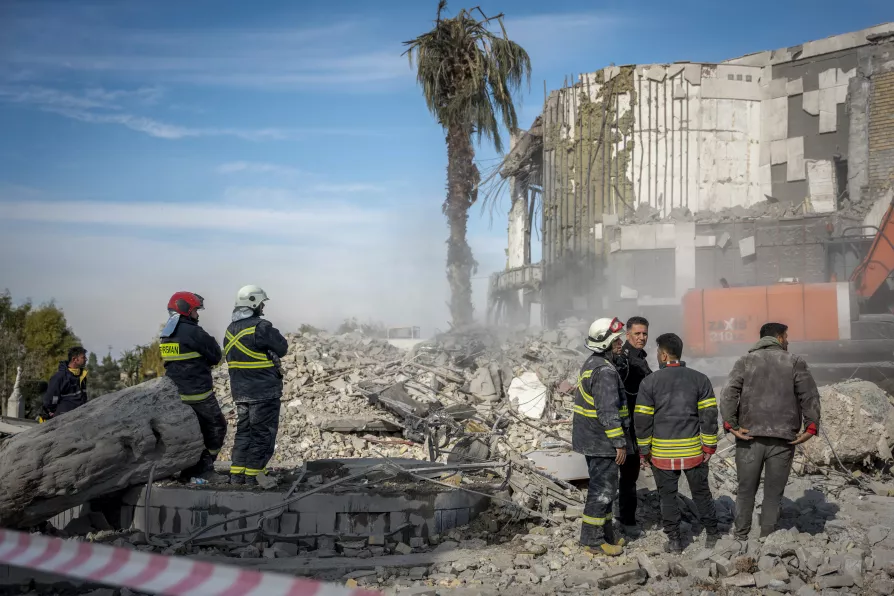SOLOMON HUGHES says Starmer has done everything the Westminster set think Labour leaders should do – but it hasn’t endeared him to the public

 Emergency services clear the rubble of the house of Peshraw Dizayi that was hit in Iranian missile strikes in Erbil, Iraq, January 16, 2024
Emergency services clear the rubble of the house of Peshraw Dizayi that was hit in Iranian missile strikes in Erbil, Iraq, January 16, 2024
The Committee for the Defence of the Iranian People’s Rights (Codir) has called for the international community to intervene to prevent the further escalation of conflicts in the Middle East, which has seen the continued bombardment of several facilities in Yemen by the US and Britain, firing of ballistic missiles by Iran’s IRGC at Israeli “espionage centres” in Erbil in north Iraq and hitting “Isis” targets in Syria, and finally exchange of missile fire between Iran and Pakistan in the past week.
These escalations have been followed, over the last day, with Israeli strikes in both Syria and Lebanon resulting in the deaths of four IRGC personnel — two of whom are believed to have been high-ranking — and two members of Hezbollah respectively.
Israeli genocide in Gaza is showing no sign of slowing down, while threats from the US and British governments against Iran continue. These are in response to missile and drone attacks against oil tankers and cargo ships on the Red Sea by Yemeni Houthi forces. As a result, hardliners inside the Iranian dictatorship are putting pressure upon the regime to act to flex its military muscle in the region.

Payam Solhtalab talks to GAWAIN LITTLE, general secretary of Codir, about the connection between the struggle for peace, against banking and economic sanctions, and the threat of a further military attack by the US/Israel axis on Iran

The Islamic Republic’s suddenly weakened regional position exposes the nation to grave threats from US imperialism












